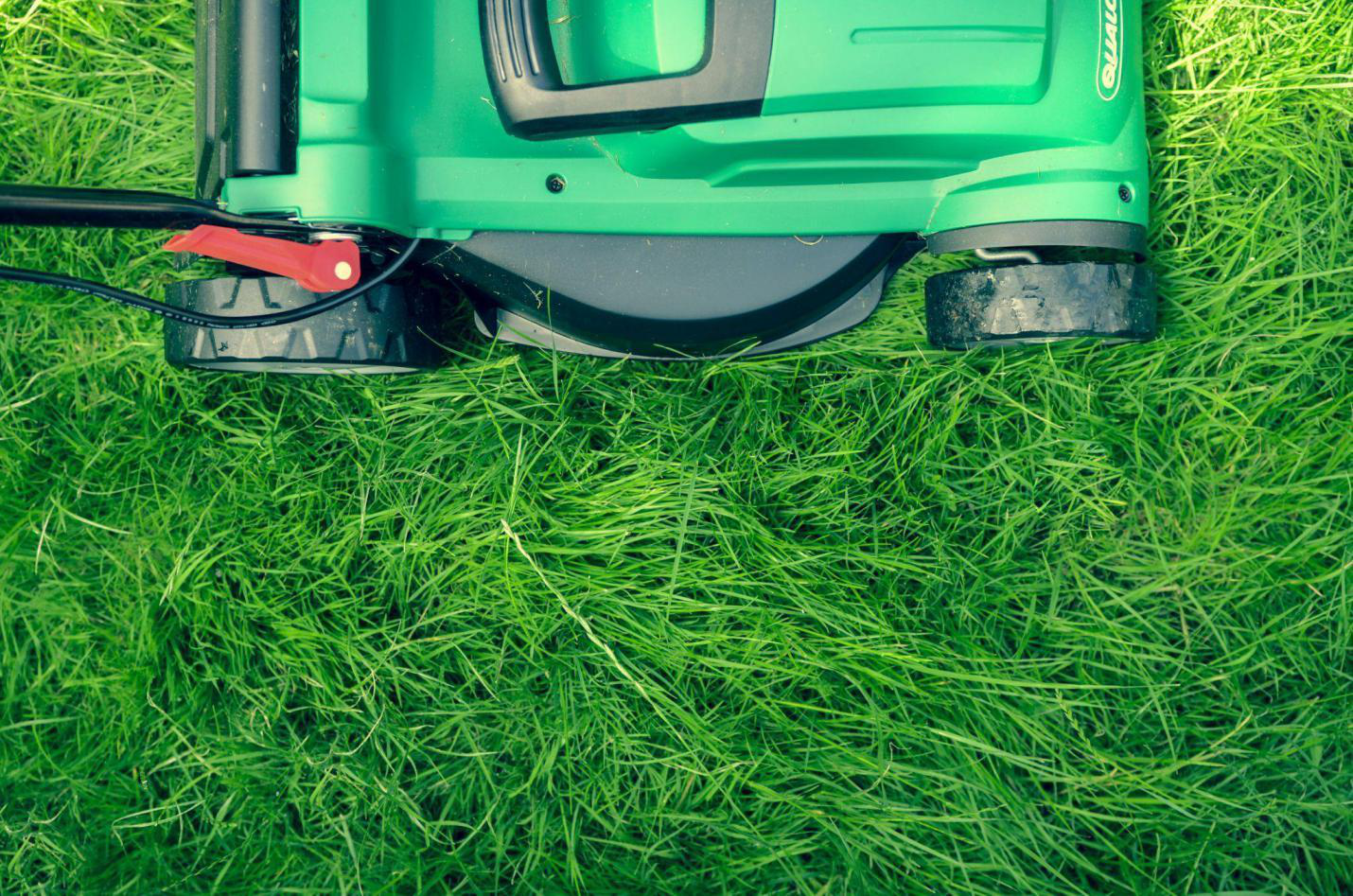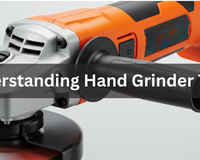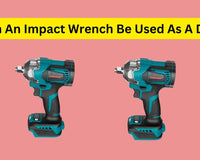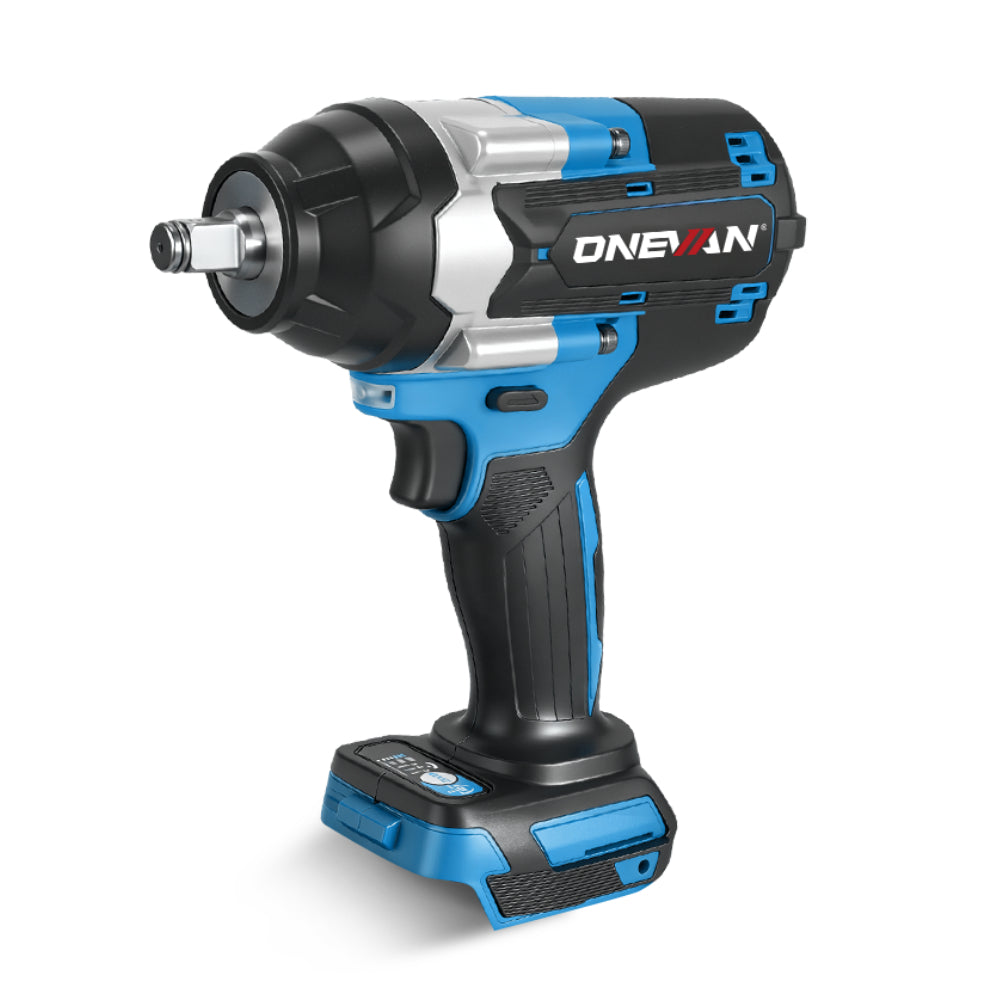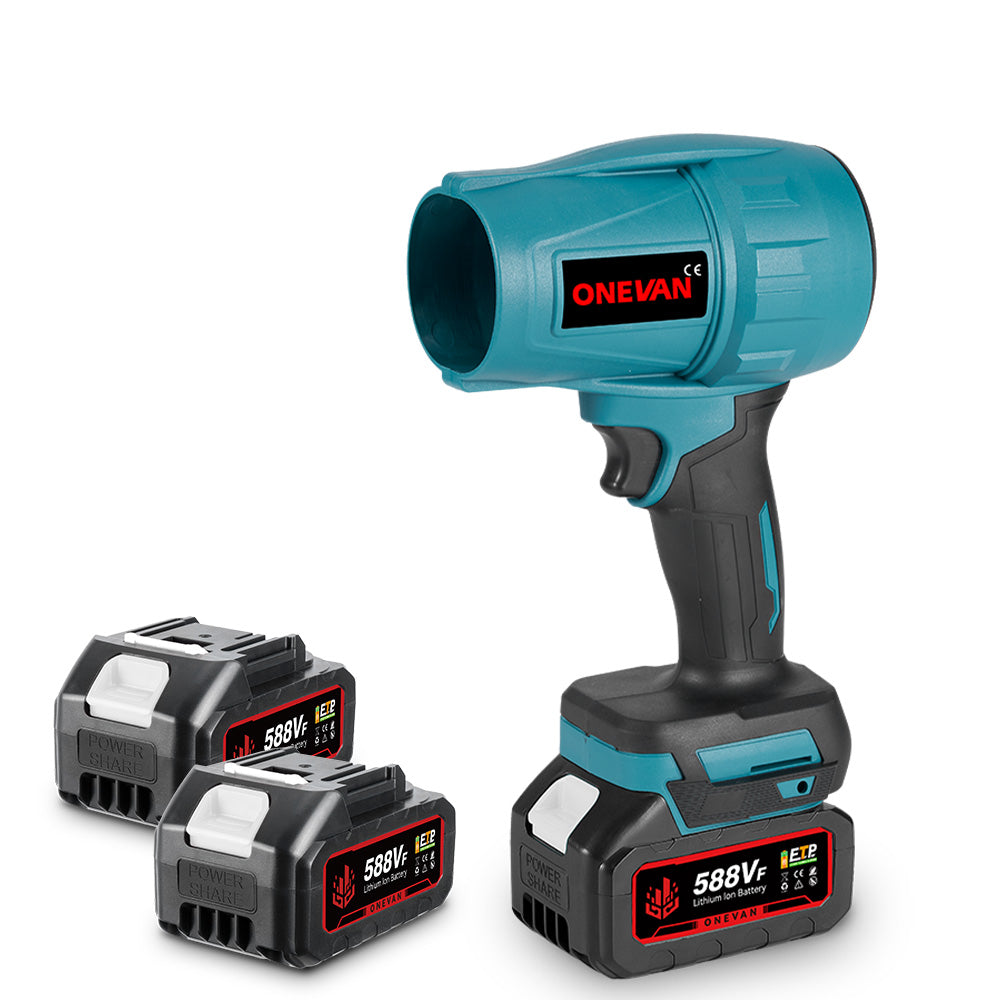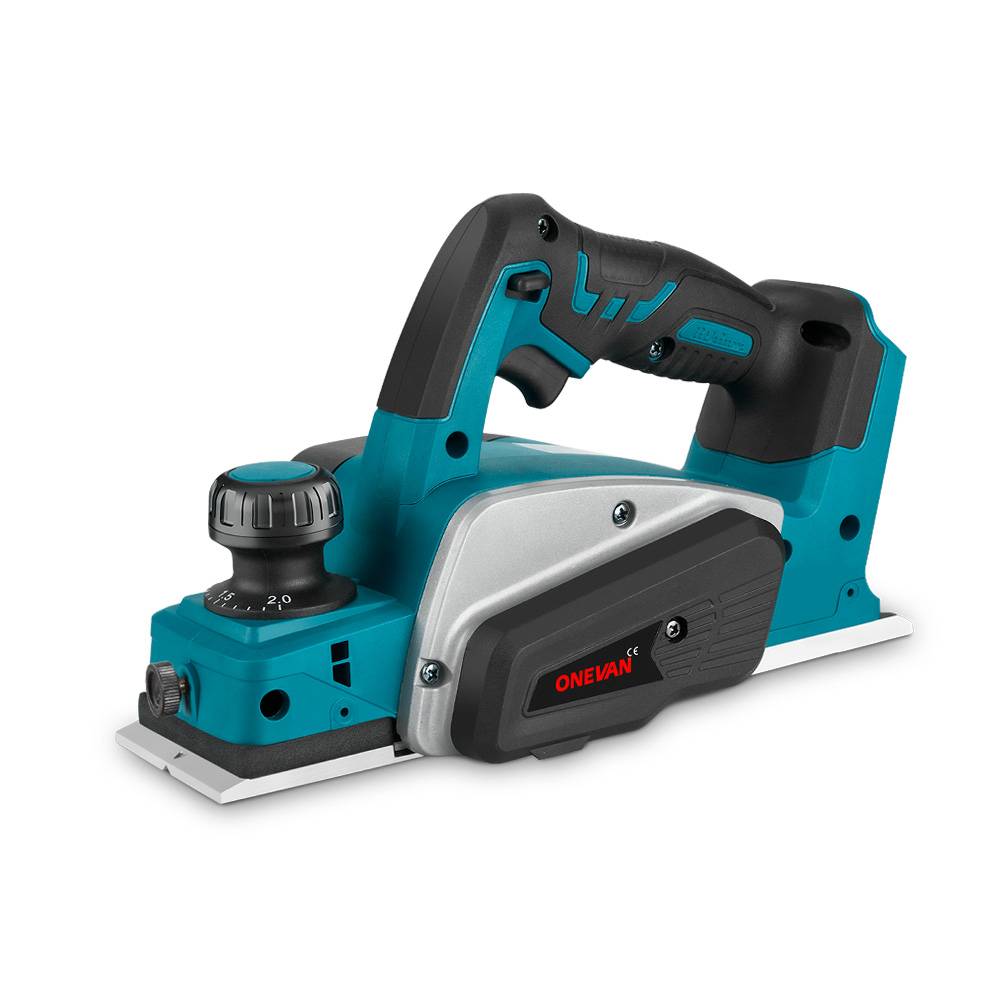O peso de um cortador de grama afeta significativamente a qualidade do gramado, sendo uma consideração crucial para atingir a saúde e a aparência desejadas.
O uso de cortadores de grama pesados pode, às vezes, causar compactação do solo, o que não é bom para o crescimento das raízes da grama no gramado. Solo compactado significa que a água, o ar e os nutrientes não conseguem penetrar facilmente nas raízes da planta.
Usar um cortador de grama leve tem várias vantagens: é mais fácil de controlar ou manipular e, portanto, é ideal para uso em gramados de pequeno a médio porte, com desenhos complexos ou com declives. No entanto, eles podem não ser potentes o suficiente para jardins grandes ou densos.
O peso do cortador também determina a carga de trabalho física necessária. Onde os modelos mais pesados drenam a energia, enquanto os mais leves exigem menos esforço para operar.
Entender a capacidade do cortador e suas necessidades específicas em relação ao seu gramado ajudará muito a determinar o fluxo de trabalho e a produtividade do seu gramado.
1. Quais são os benefícios de um cortador de grama mais leve?
Facilidade de manobrabilidade
Alguns dos fatores que influenciam a escolha de um cortador de grama incluem: Um cortador de grama mais leve é fácil de manobrar no terreno pretendido. Isso o torna ideal para uso em gramados com muitos compartimentos ou quando o espaço é limitado.
Você não precisa aplicar tanta pressão, o que seria louvável, especialmente se você corta a grama com frequência. Cortadores leves também conseguem lidar facilmente com superfícies inclinadas sem exigir muito esforço. Portanto, um cortador mais leve é mais fácil de usar e menos cansativo ao cortar a grama, concluindo a tarefa mais rapidamente e com menos esforço.
Fadiga reduzida
Um aspecto muito importante que precisa ser considerado é o quanto você se cansa ao usar o cortador de grama; você descobrirá que usar um cortador de grama mais leve reduz o cansaço que sente ao cortar a grama. Comparado a um maior, você gasta menos esforço empurrando e manobrando o cortador devido à sua natureza mais leve.
Isso é particularmente vantajoso se, por exemplo, você tiver um terreno grande ou se a vegetação crescer mais rápido e, portanto, precisar de cortes frequentes. Um cortador de grama mais leve reduz o risco de exaustão após usá-lo para cortar a grama. Aproveite e faça outras atividades.
Portabilidade aumentada
Transportar um cortador de grama mais leve é mais fácil do que um pesado, principalmente quando é preciso movê-lo de um lugar para outro. Por exemplo, se você já precisou carregar seu cortador de grama de casa para o quintal, um mais leve será a melhor opção.
Essa maior portabilidade também é útil se você tiver dois gramados, por exemplo, o da frente e o do quintal, ou mesmo se você tiver que levar o cortador de grama para o vizinho.
A portabilidade do pequeno cortador de grama torna o corte fácil, pois você não terá que se esforçar para mover o cortador e possivelmente se cansar entre o processo de corte.
Eficiência Energética
Os cortadores de grama geralmente diferem em peso; os mais leves são mais eficientes porque consomem menos combustível ou eletricidade. Isso ocorre porque eles usam menos energia para se mover e cortar a grama em comparação com os outros modelos maiores.
Cortar a grama com um cortador de grama que consuma menos energia também ajudará a resolver seu problema de eletricidade no verão e a diminuir suas emissões de carbono.
Manutenção mais fácil
Basicamente, existem cortadores pesados e cortadores mais leves; os mais leves são mais fáceis de manter do que os pesados. Isso se deve à sua simplicidade e, como resultado, possuem um número menor de peças móveis. Isso reduz o tempo gasto consertando e/ou ajustando o cortador e mais tempo gasto com o composto cuidando do jardim.
Saúde do solo e da grama
Cortadores de grama mais leves também não compactam o solo, ajudando assim no crescimento da grama.
A compactação impede que o ar, a água e os nutrientes cheguem à raiz da grama, prejudicando sua saúde.
Um estudo da extensão da Universidade de Minnesota mostrou que o solo não compactado era melhor para o crescimento das raízes e para a saúde do gramado.
Adequado para vários terrenos
Cortadores de grama mais leves são adequados para todos os tipos de terreno, especialmente em declives íngremes e/ou irregulares.
Graças a isso, não é difícil transportá-los para cima ou para baixo, por exemplo. Essa adaptabilidade permite seu uso em qualquer quintal, independentemente do terreno e em declives que variam de íngremes a inclinados, e até mesmo planos.
Dessa forma, você poderá transitar pelos diferentes terrenos com facilidade e ter sempre um gramado bem aparado.
Conveniência de armazenamento
Em termos de armazenamento, um cortador de grama mais leve é mais fácil de guardar do que um mais pesado. O cortador ideal deve ser mais leve se você tiver espaço limitado em casa ou na área de trabalho, como um galpão ou garagem, pois cobrirá menos espaço e será fácil de manobrar.
Essa conveniência também é válida se você quiser guardar seu cortador de grama para o inverno ou qualquer outra estação.
2. Os benefícios de um cortador de grama mais pesado
Agora, vamos ver mais motivos pelos quais escolher um cortador de grama mais pesado é mais benéfico para seu quintal.
Estabilidade e Durabilidade
Cortadores de grama com mais peso são mais estáveis; isso se deve ao equilíbrio do cortador quando usado em superfícies irregulares. Esse peso garante que o equilíbrio seja compensado para evitar quedas, aumentando assim a estabilidade. Portanto, eles podem ser usados para lidar com condições mais difíceis, além de garantir um bom avanço.
Os cortes para quintais maiores são construídos e resistentes, portanto exigem uma estrutura poderosa para resistir ao teste do tempo e ao uso constante.
Eles oferecem desempenho e durabilidade ideais, o que os torna adequados para uso na construção de itens de longo prazo.
Mais potência e desempenho
Cortadores de grama mais pesados geralmente são aqueles com motores mais potentes para auxiliar no corte de grama grossa, alta ou molhada.
Essa potência extra garante que você seja capaz de cortar áreas difíceis sem consumir muito tempo ou deixar sequências intocadas.
Isso ocorre principalmente porque o desempenho aprimorado poderá garantir ao usuário um corte mais limpo e uniforme, principalmente em gramados muito extensos ou áreas com muita folhagem.
Capacidades de cobertura morta e ensacamento
As duas funções dos cortadores de grama que agregam valor extra são a cobertura morta e a ensacagem.
A cobertura morta envolve aparar a grama e depois redistribuir os recortes pelo gramado para decompor e enriquecer o solo.
Esses recortes se decompõem e liberam nutrientes de volta ao solo, benéficos para o crescimento da grama.
Além de ser benéfico para a criação de um belo tapete verde, como um gramado, também reduz o desperdício. Por outro lado, o ensacamento envolve a coleta dos recortes de grama em um saco fixado no cortador de grama.
Evita a desordem no chão, garantindo assim um ambiente limpo no recinto, especialmente se os recortes forem desagradáveis à vista ou se alguém for alérgico a eles.
Vibração e ruído reduzidos
Os modelos pesados são construídos de forma a ajudar a reduzir algumas das vibrações resultantes do funcionamento do motor do cortador.
Isso proporciona maior conforto para quem cuida do gramado. Cortar grama com um cortador de grama com vibração reduzida é mais confortável e nossas mãos e braços não se cansam tão rapidamente, o que significa que mais grama pode ser cortada em um determinado período.
Além de apresentar baixa vibração, alguns cortadores de grama mais pesados são projetados com motores que visam reduzir o ruído e, ao mesmo tempo, fornecer alta potência, embora os níveis de ruído possam variar de acordo com modelos específicos e designs de motor.
Menos perturbações sonoras resultam em melhor audição e também reduzem a perturbação de familiares e vizinhos. Níveis de ruído reduzidos também são mais necessários em áreas residenciais, onde ruídos altos podem interferir no ambiente alheio.
Uso profissional
Para trabalhos comerciais, cortadores de grama profissionais costumam recorrer a modelos mais pesados devido à sua durabilidade e potência, essenciais para tarefas extensas e exigentes. No entanto, a escolha do cortador, seja ele pesado ou leve, depende, em última análise, dos requisitos específicos do trabalho e do terreno.
Pode ser imensamente útil para paisagistas observar que eles frequentemente trabalham com áreas amplas e diversas de terra, onde até mesmo gramas resistentes e teimosas exigem um cortador potente para serem controladas, independentemente do terreno.
Maior confiabilidade, motores potentes e outras possibilidades como trituração e ensacamento confirmam a vantagem do uso de modelos mais massivos por profissionais.
Esses cortadores de grama também são duráveis para garantir que possam ser usados por longos períodos, dependendo do projeto que está sendo executado.
Isso ocorre porque eles são capazes de oferecer dedicação padrão, o que leva à produção de resultados de alta qualidade, o que é muito importante no ramo de cuidados com gramados.
Preservar Valor
Um cortador de grama para serviços pesados tem maior probabilidade de manter seu valor por muitos anos devido à sua estrutura robusta e à sua fabricação. Devido à sua construção robusta e ao uso em áreas não profissionais, máquinas de corte dessa natureza tendem a executar mais tarefas e, portanto, são menos propensas à depreciação em comparação com máquinas leves.
3. Impacto do peso do cortador de grama na saúde do gramado
Os impactos nocivos dos cortadores de grama que sopram
Compactação do solo:
Cortadores de grama grandes também são destrutivos para o seu gramado, pois os pesos pesados que eles possuem compactam o solo. Isso ocorre porque, ao usar um cortador pesado para cortar o composto, o peso aplicado faz com que o solo se compacte, diminuindo assim os espaços entre as partículas no solo. Isso causa um problema de acesso à água, ao ar e aos nutrientes pelas raízes das plantas.
Por esse motivo, é provável que a grama fique mais rala e suscetível a doenças e pragas. Quando o solo fica compactado, a profundidade é menor, permitindo que a grama cresça no gramado.
Marcas de pneus:
Uma desvantagem dos cortadores de grama pesados é que eles deixam marcas de pneus na superfície por onde passam; a grama também fica compactada e achatada. Os efeitos incluem a formação de sulcos na área do gramado pelos pneus do cortador, devido ao peso e à pressão exercidos em terrenos macios ou úmidos.
Essas marcas não só prejudicam a estética do seu gramado verde, mas também atrapalham o crescimento e o desenvolvimento adequados. Cortar a grama da mesma forma, com o tempo, aumenta as marcas das rodas porque a grama começa a crescer profundamente dentro do sulco, e é preciso consertar o gramado para corrigir a situação.
4. Escolhendo o cortador de grama certo: combinando o tipo e o peso com as necessidades do seu gramado
Apresentar os principais tipos de cortadores de grama disponíveis no mercado e discutir seu peso comum e seus usos
Cortadores de grama manuais: ideais para gramados pequenos e planos
Cortadores manuais de carretel são ideais para gramados pequenos e planos e espaços apertados. Este cortador compacto é fácil de manobrar em torno de árvores e cantos.
O design leve e o perfil baixo facilitam o armazenamento, mesmo em um gancho de parede. É perfeito para gramados baixos em áreas residenciais.
Cortadores de grama elétricos: versáteis para vários tamanhos de gramado
Cortadores de grama sem fio
O cortador de grama sem fio e sem escovas ONEVAN de 4000 W é uma ferramenta eficaz e multifuncional, ideal para a manutenção de gramados de diversos tamanhos. Equipado com um robusto motor sem escovas de 4000 W e diversas opções de lâminas, ele combina alto desempenho com versatilidade.
Este cortador de grama foi projetado para uso pessoal e oferece versatilidade com suas lâminas intercambiáveis, incluindo opções para diferentes estilos de corte para atender a diversas necessidades de cuidado do gramado.
Consequentemente, é ajustável telescopicamente de 100/138 cm para acomodar usuários de diferentes alturas, facilitando o uso. Este cortador de grama possui um grande diâmetro de corte de 230 mm, o que auxilia no corte correto da grama e de ervas daninhas.
Feito de materiais sólidos, é adequado tanto para aplicações domésticas quanto comerciais. Além disso, o modelo funciona com baterias Makita de 18 V, então você terá uma ferramenta potente com operação sem fio e sem preocupações com gases.
Cortadores de grama com fio
Cortadores de grama com fio são ideais para gramados médios a grandes, pois utilizam eletricidade de uma tomada. Com cortadores de grama com fio, você tem a vantagem de fornecimento contínuo de energia, garantindo que nunca fique sem bateria. No entanto, a mobilidade pode ser limitada pelo comprimento do fio, o que é um fator importante para gramados maiores. Eles também são leves, facilitando a movimentação pelo quintal.
Cortadores de grama com fio são mais econômicos e ecologicamente corretos. No entanto, tenha cuidado com o fio, pois pode causar tropeços e há risco de cortá-lo durante o corte.
Cortadores de grama a gás: para gramados médios e grandes
Os cortadores de grama a gasolina são mais potentes que os elétricos, mas são barulhentos e liberam gases perigosos para o meio ambiente.
Eles tendem a ser mais volumosos e exigem mais mobilidade, mas são ideais para usuários com quintais grandes ou que passam muito tempo cortando a grama.
Cortadores de grama autopropelidos: ideais para gramados em áreas montanhosas ou grandes
Os cortadores de grama autopropelidos são adequados para jardins íngremes ou grandes, especialmente para cortar grama. Eles avançam de forma totalmente independente, com assistência; possuem uma alavanca de controle de velocidade e você simplesmente acompanha o movimento por trás.
Existem diferentes tipos: com tração dianteira, o automóvel é excelente para se deslocar em gramados planos e uniformes, além de fazer curvas; a tração traseira é ideal para gramados íngremes, pois oferece tração. Se você usa um ensacador, os modelos com tração traseira são especialmente convenientes, pois a máquina permanece estável mesmo se o saco estiver cheio de muito material.
Cortadores autopropelidos podem reduzir significativamente o esforço de corte, tornando-os adequados para uso em grama densa e superfícies levemente a moderadamente inclinadas.
Se as inclinações forem muito íngremes, procure modelos que tenham certos extras para esse tipo de terreno. A velocidade única é boa para quase todas as situações, enquanto a velocidade variável permite que o usuário escolha a velocidade com base no ritmo da caminhada e no tipo de grama.
Além disso, as vantagens dos cortadores de grama autopropelidos são que eles não abrem mão dos recursos: quase todos esses dispositivos podem descarregar lateralmente, coletar recortes e até triturá-los, proporcionando ampla funcionalidade para manutenção do gramado.
Cortadores de grama e tratores de grama: ideais para grandes propriedades
Cortadores de grama e tratores de gramado são adequados para jardins grandes.
Este cortador é fácil de operar, principalmente ao dar ré e perto de árvores.
Ele é capaz de cortar grama seca e molhada sem obstáculos e de forma muito suave, sem criar buracos. Mesmo em "estradas esburacadas", ele permanece suave e fácil de manusear.
5. Considerações para a compra de um cortador de grama com vários pesos
Há vários fatores a serem considerados ao comprar um cortador de grama com vários pesos.
Tamanho e terreno do gramado
Considere o tipo de gramado e o tamanho do jardim, seja ele acidentado ou irregular, ao escolher o cortador de grama certo. Se você tiver um gramado pequeno e plano para cortar, é melhor usar um cortador de grama manual. Se você tiver um gramado grande com algum grau de irregularidade, um cortador de grama manual a gasolina ou um cortador de grama autopropelido pode ser muito útil.
Para grandes áreas planas ou com declive moderado, cortadores de grama, também conhecidos como tratores de gramado, podem ser altamente eficientes devido à sua velocidade e facilidade de uso. No entanto, para declives muito acentuados, modelos específicos projetados para esse tipo de terreno devem ser considerados para garantir a segurança e o desempenho ideal.
Por exemplo, se você mora em uma propriedade grande com colinas, usar um cortador de grama manual pode levar várias horas. Um cortador de grama manual como o John Deere S100 pode concluir o trabalho mais rapidamente.
Requisitos de corte
Diferentes cortadores de grama têm capacidades de corte variadas. Se você deseja que seu gramado seja preciso e tenha bordas perfeitas, opte por um cortador de grama a gasolina com múltiplas funções ou um aparador elétrico premium como o Aparador de Grama Sem Fio e Sem Escovas ONEVAN 4000W .
Se você gosta de algo prático de usar e ecologicamente correto, o cortador de grama elétrico é a melhor opção.
Considerações ambientais
Nesse contexto, é importante considerar os seguintes fatores ao escolher um cortador de grama: Meio ambiente. Os mesmos motivos se aplicam aos cortadores de grama elétricos sem fio, pois não causam danos e produzem ruído mínimo ou nulo em comparação com ferramentas movidas a gasolina.
Eles também envolvem despesas menores porque você não precisa trocar óleo ou armazenar combustível como faria com carros convencionais.
Procure embalagens ou componentes de cortadores de grama ecologicamente corretos, feitos de materiais reciclados. Escolher produtos ecologicamente corretos não é apenas uma decisão acertada do ponto de vista da proteção da natureza, mas também pode economizar dinheiro.
Manutenção e Armazenamento
A manutenção e o armazenamento adequados do seu cortador de grama são essenciais para sua longa durabilidade. Verifique e limpe a lâmina regularmente para evitar que fique cega e enferruje.
Para cortadores de grama a gasolina, siga as instruções do fabricante para trocar o óleo, o filtro de ar e inspecionar a vela de ignição. Para cortadores de grama elétricos, certifique-se de limpá-los regularmente e verificar a bateria e o sistema de carregamento de acordo com as recomendações do fabricante. Após cada uso, limpe a grama cortada e os detritos para evitar acúmulo.
Guarde o seu cortador de grama em um local seco e protegido. Se possível e prático para o seu modelo específico, considere elevá-lo para evitar danos aos pneus e reduzir o risco de problemas relacionados à umidade. Durante a entressafra, drene o combustível dos cortadores de grama a gasolina. Para modelos elétricos, consulte o manual do proprietário para obter informações sobre os cuidados com a bateria, pois alguns podem recomendar a remoção e o armazenamento, enquanto outros podem recomendar deixar a bateria no local para carregar.
Orçamento
Ao comprar um cortador de grama, é essencial considerar seu orçamento.
Os preços podem variar de menos de US$ 100 para um cortador de grama manual básico a mais de US$ 3.000 para cortadores de grama de última geração.
Determine os principais recursos necessários, como largura de corte, fonte de alimentação e acessórios adicionais, e equilibre esses requisitos com o que você está disposto a gastar.
Muitas vezes, é mais econômico a longo prazo investir em um modelo de maior qualidade, que dure mais e exija menos manutenção. Além disso, considere os custos operacionais, incluindo combustível, eletricidade e peças de reposição, para garantir que o cortador de grama se encaixe no seu orçamento.
Experiência do usuário e avaliações
Ler avaliações de clientes e considerar a experiência do usuário pode ser útil ao escolher um cortador de grama.
Procure cortadores de grama com feedback positivo sobre desempenho, durabilidade e facilidade de uso de usuários com tamanhos de gramado e terrenos semelhantes.
Considere também a reputação da marca e a cobertura da garantia.
Fazer uma pesquisa completa antes de fazer uma compra pode economizar tempo, dinheiro e possível frustração.
Recursos adicionais:
Alguns cortadores de grama vêm com recursos adicionais, como capacidade de trituração, opções de ensacamento e alturas de corte ajustáveis. Outros têm recursos práticos, como alças dobráveis para facilitar o armazenamento ou acessórios para tarefas adicionais de cuidado do gramado.
Considere quais recursos são importantes para você e compare modelos para encontrar o que melhor atende às suas necessidades.
Com o cortador de grama certo, cortar a grama pode se tornar uma tarefa agradável e eficiente, em vez de uma tarefa tediosa.
6. Estudos de caso: Aplicações de tipos e pesos de cortadores de grama
Estudo de caso 1: O cortador de grama manual leve em um jardim urbano
Lindsey Davis , proprietária de um pequeno jardim urbano, recebeu uma recomendação de um cortador de grama manual devido à sua leveza e à sua natureza ecológica. O design intuitivo permitiu cortar a grama facilmente, principalmente em áreas extremas.
Várias ações de corte com lâmina de carretel foram saudáveis para o gramado sem a necessidade de usar produtos químicos, daí o aspecto verde do gramado.
O fluxo de trabalho documentado também é adequado para proprietários de imóveis com emissão zero que desejam se concentrar nessas atividades.
O cortador de grama manual foi uma escolha razoável para este jardim urbano, apesar de suas deficiências. Pode não ser ideal para pessoas com dificuldades de mobilidade ou quintais com superfícies irregulares, mas é ecologicamente correto.
Estudo de caso 2: O sucesso do cortador de grama elétrico em um gramado suburbano de médio porte
Para este estudo de caso, um proprietário de uma casa suburbana com um gramado de tamanho médio comprou o cortador de grama Greenworks Twin Force de 20 polegadas e 40 V devido ao seu design elétrico sem fio, de peso médio e altamente manobrável.
Ambos alimentam uma bateria de 2 ou 4 Ah que permite ao cortador cortar dois gramados de uma casa suburbana padrão, o jardim da frente e o dos fundos, antes de precisar ser recarregado. Há uma leve falta de energia ao usá-lo em grama alta; é um modelo movido a bateria, mas isso compensa.
O usuário doméstico está satisfeito com a conversão de gás para eletricidade, comentando que ela é menos barulhenta e tem bom desempenho.
Eles também consideram a possibilidade de mudar para um sistema de 80 volts se for mais barato, e sugerem outras ferramentas elétricas para gramado, como a motosserra com acessório para aparar cerca viva e o aparador de grama/cortador de ervas daninhas para facilitar a manutenção do gramado.
Estudo de caso 3: Cortador de grama a gás em terreno desafiador
Um usuário do Quora que possui gramados médios a grandes com mudanças na superfície e grama grossa e resistente explica por que escolheu um cortador de grama manual movido a gasolina, por ser potente e estável.
Embora mais pesados que os modelos elétricos, os cortadores de grama a gasolina são projetados para distribuir o peso uniformemente, o que ajuda a minimizar a compactação do solo. Sua construção robusta aumenta a produtividade do corte, mantendo padrões e alturas de corte consistentes.
Eles apreciam a conveniência e o poder de corte dos cortadores de grama a gasolina, mas estão preocupados com os fatores sociais que afetam os recursos naturais, o que torna isso uma questão de escolha pessoal até certo ponto.
Estudo de caso 4: Cortador autopropelido para corte sem esforço em uma colina íngreme
Em uma avaliação de usuário no Quora, Marie Jensen explica como seu cortador de grama autopropelido simplifica o corte de grama em seu amplo quintal acidentado. Ela elogia a facilidade de uso do cortador, que reduz significativamente o esforço físico.
Cortar a grama é um trabalho cansativo, então ela optou por este cortador de grama com o objetivo de minimizar o esforço físico. Aliás, nesse ponto, Marie enfatiza que o aspecto da autopropulsão simplifica a tarefa, reduzindo a pressão que normalmente sentiriam.
Ela descobriu que é difícil recuar em curvas fechadas devido ao peso do cortador, mas também aprendeu que precisa evitar curvas estreitas ou inclinar o cortador.
O cortador de grama ainda deixa Marie, de 68 anos, feliz porque ela consegue cortar a grama sozinha e enfrentar colinas íngremes com facilidade.
Estudo de caso 5: Eficiência do cortador de grama em uma grande propriedade
O proprietário de uma grande propriedade rural que investiu em um cortador de grama para controlar seu enorme terreno explicará por que escolheu aquele cortador específico e a melhoria na eficiência ao cuidar do gramado grande.
Trocar para um cortador de grama reduziu o tempo de corte de 3 horas para apenas 1 hora.
A princípio, o proprietário se preocupa com o peso e a manutenção do cortador; no entanto, ele ou ela gosta do deck maior e da eficiência desse tipo de cortador.
Eles fizeram bom uso do piloto e estão ansiosos por outras ocasiões de corte de grama; de certa forma, eles mudaram o positivismo para seus regimes de corte e a satisfação geral com a compra.
7. O Futuro do Peso do Cortador de Grama: Inovações e Tendências
Materiais leves
Isso indica que há potencial para que futuros cortadores de grama utilizem materiais leves.
Hoje em dia, os fabricantes usam plástico de alta resistência e ligas de alumínio para reduzir o peso dos cortadores de grama e aumentar sua robustez.
Esses cortadores de grama mais leves são mais fáceis de "puxar" ou "empurrar" no espaço, especialmente em espaços estreitos ou em terrenos irregulares.
Apesar do nome, o desenvolvimento de cortadores de grama mais leves torna o corte da grama menos estressante e demorado. Com melhorias nos recursos e no design, os cortadores de grama se tornarão mais fáceis de usar e eficazes para seus usuários.
Tecnologia alimentada por bateria
A tecnologia alimentada por bateria é outra tendência predominante na produção de cortadores de grama.
Cortadores de grama elétricos sem fio são outra tendência devido ao uso de baterias recarregáveis; esses cortadores não emitem poluição e não são tão barulhentos.
Os desenvolvimentos na tecnologia de baterias estão resultando em baterias mais potentes e duradouras, tornando os cortadores de grama elétricos sem fio uma opção cada vez mais viável para muitos usuários.
Isso também eliminará a necessidade de gás ou eletricidade, pois operar o cortador para cortar a grama do complexo será mais fácil e ecológico.
Design compacto
Devido à grande popularidade de quintais menores e pessoas que vivem em áreas urbanas, a necessidade de cortadores de grama pequenos e leves está aumentando.
Nesse sentido, os fabricantes estão desenvolvendo minidispositivos que podem atender aos requisitos padrão de corte.
Como esses cortadores de grama são mais compactos, eles são mais fáceis de armazenar e transportar, principalmente na vida agitada de hoje em dia.
Sistemas de autopropulsão
Os mecanismos de tomada de força em cortadores de grama auxiliam no corte, empregando o uso de um motor para impulsionar o cortador para frente.
Isso é especialmente benéfico em áreas grandes e montanhosas do gramado que precisam ser cortadas. A autopropulsão elimina a necessidade de alguém puxar ou empurrar você ao longo do caminho, resultando em menos tempo e fadiga.
Normalmente, esses sistemas conseguem se ajustar à velocidade adequada ao caminhar. Esse recurso ajuda a tornar o corte de grama mais fácil e menos cansativo, mesmo para pessoas com deficiência física.
Tecnologia Inteligente
A inovação em cortadores de grama também inclui a incorporação de tecnologia inteligente.
Alguns modelos agora vêm equipados com recursos como rastreamento por GPS, agendamento automático e recursos de controle remoto.
Esses avanços tornam o corte de grama mais eficiente e fácil de usar, permitindo configurações personalizadas e manutenção mais fácil.
8. Conclusão
Concluindo, o peso de um cortador de grama afeta significativamente a saúde do gramado e a experiência do usuário.
Cortadores de grama pesados, embora potentes e eficientes para terrenos grandes ou difíceis, podem causar compactação do solo e esforço físico.
Por outro lado, cortadores de grama leves são mais fáceis de usar, oferecem melhor manobrabilidade e causam menos impacto no gramado, tornando-os ideais para áreas menores ou planas. Inovações como bateria, autopropulsão e recursos inteligentes estão tornando os cortadores de grama mais convenientes e ecológicos.
Ao escolher um cortador de grama, considere estes fatores para encontrar um modelo que se adapte às suas necessidades e às condições do seu jardim. Isso garante um gramado mais saudável e uma experiência de corte mais agradável.
9. Perguntas frequentes
1. Qual é o peso médio de um cortador de grama?
O peso médio de um cortador de grama portátil varia normalmente entre 180 e 270 kg. Esse peso pode variar dependendo do tamanho, do motor e dos recursos adicionais do cortador. É importante considerar esse peso ao planejar o armazenamento e o transporte, bem como o impacto potencial no seu gramado.
2. Quanto pesa um cortador de grama?
O peso de um cortador de grama varia de acordo com o modelo e os recursos. Geralmente, pesam entre 27 e 40 kg. Verifique os detalhes do produto para obter o peso exato, pois recursos como autopropulsão ou motores maiores podem aumentar o peso.
3. Os cortadores de grama autopropelidos são mais pesados do que os cortadores de grama manuais?
Sim, cortadores de grama autopropelidos são geralmente mais pesados do que cortadores de grama manuais porque possuem componentes extras, como um sistema de acionamento e um motor para autopropulsão. Essas peças aumentam o peso total. Embora isso torne os cortadores de grama autopropelidos mais difíceis de levantar e transportar, o recurso de autopropulsão reduz o esforço físico necessário durante o corte, tornando-os mais fáceis de usar em gramados grandes ou irregulares.
4. Os cortadores de grama autopropelidos são pesados?
Os cortadores de grama autopropelidos geralmente são mais pesados do que os cortadores de grama manuais porque têm peças extras, como um sistema de transmissão e um motor para autopropulsão.
Esse peso adicional pode torná-los mais difíceis de levantar e mover, mas o recurso de autopropulsão reduz o esforço necessário para usá-los. Isso os torna uma boa opção para gramados maiores ou irregulares.
5. Os cortadores de grama elétricos são mais leves?
Em geral, os cortadores de grama elétricos são mais leves em comparação aos cortadores de grama tradicionais a gasolina. Isso ocorre porque eles não possuem um motor a gasolina pesado, o que os torna mais fáceis de empurrar e manobrar. No entanto, o peso pode variar dependendo do modelo específico e das características do cortador de grama elétrico.
O peso dos cortadores de grama movidos a bateria pode variar; alguns podem ser mais pesados devido às baterias grandes, enquanto outros são projetados para serem leves.
6. Quanto pesa um cortador de grama manual Toro?
O peso de um cortador de grama manual Toro pode variar dependendo do modelo específico. Geralmente, pesam entre 27 e 40 kg. É importante verificar os detalhes do produto para obter um peso exato, pois recursos como autopropulsão ou motores maiores podem aumentar o peso total.
7. Quanto pesa um cortador de grama manual Husqvarna?
O peso de um cortador de grama manual Husqvarna pode variar dependendo do modelo específico. Eles pesam entre 27 e 40 kg.
É importante verificar os detalhes do produto para obter um peso exato, pois recursos como autopropulsão ou motores maiores podem aumentar o peso total.
8. Quanto pesa um cortador de grama com raio de giro zero de 52 polegadas?
O peso de um cortador de grama com giro zero de 132 cm pode variar dependendo do modelo e dos recursos específicos. Em média, eles pesam entre 272 e 360 kg.
No entanto, alguns modelos podem ser mais leves ou mais pesados dependendo do motor, tamanho do deck e outros fatores. É melhor verificar as especificações do produto para obter um peso exato.
9. Quanto pesa um cortador de grama com raio de giro zero de 54 polegadas?
O peso de um cortador de grama com giro zero de 137 cm pode variar dependendo do modelo e dos recursos específicos. Em média, eles pesam entre 315 e 400 kg. No entanto, alguns modelos podem ser mais leves ou mais pesados dependendo do motor, tamanho da plataforma e outros fatores. É recomendável verificar as especificações do produto para obter o peso exato.
10. Os cortadores de grama a gasolina vão acabar?
Embora os cortadores de grama elétricos estejam se tornando mais populares, é improvável que os cortadores de grama a gasolina desapareçam completamente. Os cortadores a gasolina ainda têm suas vantagens, como serem mais potentes e capazes de lidar com gramados maiores ou terrenos mais acidentados. No entanto, com os avanços na tecnologia de baterias e as crescentes preocupações com emissões e poluição sonora, a popularidade dos cortadores de grama elétricos pode continuar a aumentar.

